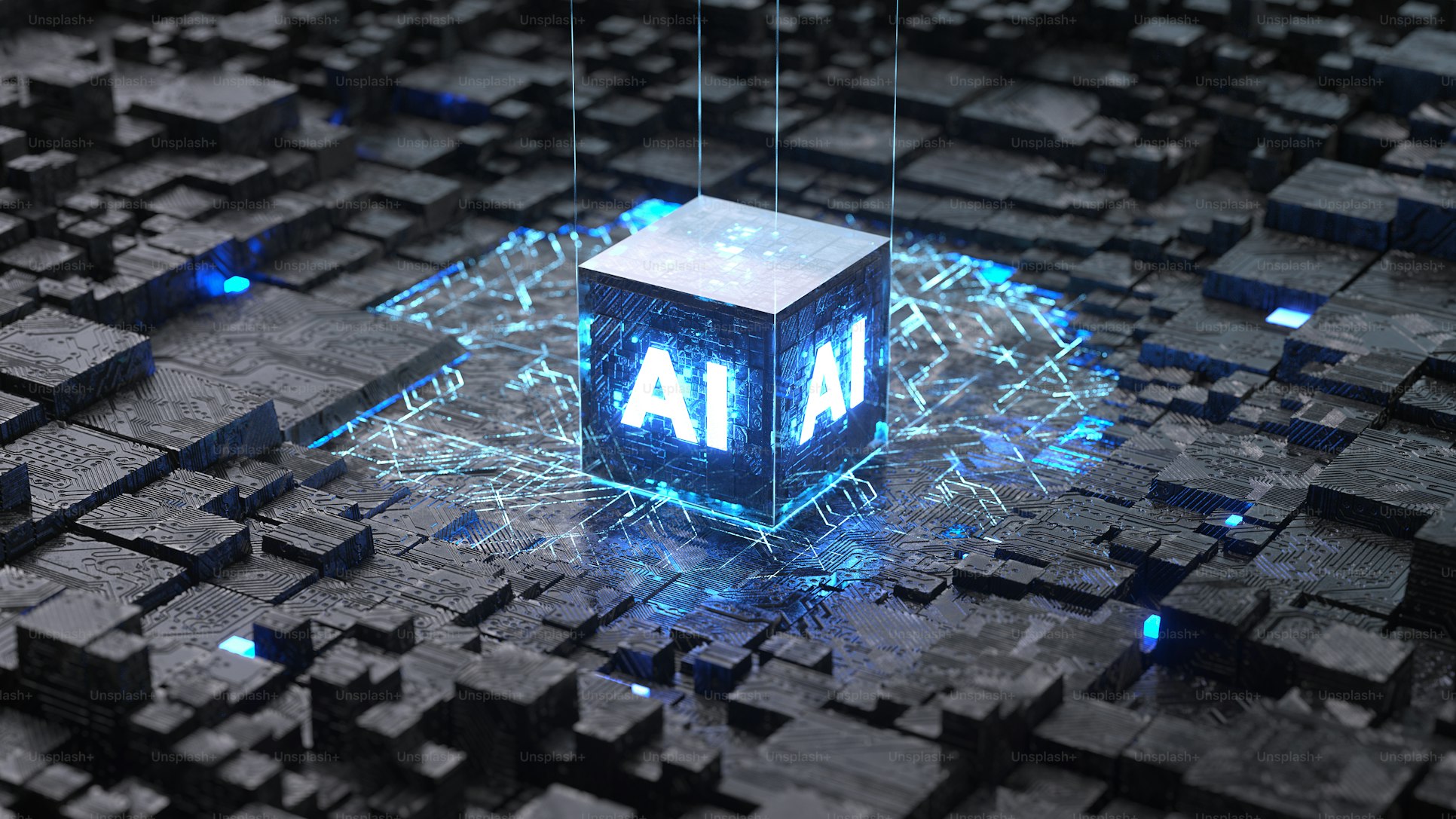AI Advances and ChatGPT in the Software Development World

The software development world has witnessed a significant transformation with the advent of Artificial Intelligence (AI) and its applications. One of the most notable AI tools that has gained popularity in recent times is ChatGPT. In this article, we will explore the AI advances and the role of ChatGPT in the software development world.
What is ChatGPT?
ChatGPT is a long-form question-answering AI from OpenAI that responds to complicated questions. It’s an exciting new technology that is being taught to understand and respond to questions posed by people in real-life scenarios. Its capacity for human-like response has sent shocks to the whole world, giving rise to the notion that it could one day transform how people interact with computers and how information is found.
ChatGPT is a powerful tool that has the potential to revolutionize the way we interact with computers and access information. Its ability to generate human-like responses and code snippets makes it a valuable resource for developers. However, it’s essential to remember that its responses are not always 100% accurate, so you need to do thorough research before using it for more advanced tasks.
Key Features of ChatGPT
-
Natural Language Processing (NLP): ChatGPT has the ability to understand and interpret human language, allowing it to respond to complex questions and generate human-like text.
-
Code Generation: ChatGPT can generate code snippets in various programming languages, making it a valuable resource for developers.
-
Document Generation: ChatGPT can generate documents, including code documentation, user manuals, and other types of written content.
-
Conversational Interface: ChatGPT has a conversational interface that allows users to interact with it in a natural and intuitive way.
How ChatGPT Works
ChatGPT uses a combination of natural language processing (NLP) and machine learning algorithms to understand and respond to user input. It has been trained on a large data-set of text from the internet and can generate human-like responses to a wide range of questions and topics.
Applications of ChatGPT in Software Development
ChatGPT has a number of applications in software development, including:
-
Code Generation: ChatGPT can generate code snippets in various programming languages, making it a valuable resource for developers.
-
Code Review: ChatGPT can review code and provide feedback on syntax, style, and best practices.
-
Documentation: ChatGPT can generate documentation, including code documentation, user manuals, and other types of written content.
-
Testing: ChatGPT can generate test cases and test code, making it a valuable resource for developers.
Limitations of ChatGPT
While ChatGPT is a powerful tool, it has a number of limitations, including:
-
Accuracy: ChatGPT is not always accurate and can generate incorrect or incomplete responses.
-
Context: ChatGPT can struggle to understand context and may generate responses that are not relevant to the conversation.
-
Bias: ChatGPT can reflect the biases of its training data and may generate responses that are biased or discriminatory.
How ChatGPT Benefits Developers
ChatGPT is a valuable resource for developers looking to save time and effort in their work. Its ability to generate code snippets, answer questions, and create documents in a few seconds can definitely improve productivity. However, it’s essential to remember that its responses are not always 100% accurate, so you need to do thorough research before using it for more advanced tasks.
1. Generating Codes
In terms of code generation, ChatGPT is a potent tool for developers. ChatGPT can comprehend and interpret developer needs using its natural language processing skills and provide corresponding code snippets. When it comes to repeated tasks or boilerplate code, this may save programmers a lot of time.
Instead of producing basic functionality, ChatGPT can produce complex codes for tasks like constructing an entire class or module. This enables developers unfamiliar with a programming language or framework to catch up fast without spending much time on the fundamentals, which may be very valuable for beginner programmers.
2. Generating Documents
Thanks to ChatGPT’s natural language processing skills, it can accurately generate documents identifying the requirements. Developers, who frequently have to spend a lot of time developing comprehensive documentation for their code, might benefit significantly from this in terms of time savings.
For instance, a developer can give ChatGPT a snippet of code and instruct it to generate documentation explaining the function’s intent, inputs, outputs, and other relevant details. Also, ChatGPT can produce documentation for whole classes or modules, offering a comprehensive overview of the code.
3. Writing Test Cases
ChatGPT can help developers to write test cases in a variety of ways. One way is by recognizing the test case’s purpose and creating test inputs and expected outcomes. For example, suppose a developer asks ChatGPT to write a test case that can handle invalid input. In that case, ChatGPT may generate invalid inputs, such as special characters, empty strings, and out-of-range values.
4. Simplifying Codes and Explaining Complex Code Snippets
With ChatGPT, programmers can quickly produce plain language explanations of complicated code sections, making it simpler for others to comprehend and maintain the code.
By automatically generating code comments and documentation, ChatGPT can be used to simplify the code. Developers can therefore save a considerable amount of time and effort. In addition, due to the model’s ability to comprehend the underlying logic and structure of the code, ChatGPT’s generated documentation and comments are frequently more accurate and informative than a developer might write.
5. Generating Alternative Codes
For developers trying to produce alternative, performance-improved code, ChatGPT can be a beneficial tool. It can comprehend many programming languages and coding patterns because it has been trained on a large volume of code. As a result, ChatGPT can produce alternative code that is not only more effective and efficient but also legible and maintainable.
6. Tracking Down Bugs/Applying Good Code Practices
For developers who want to identify bugs and implement best practices in coding, ChatGPT might be a beneficial tool. By recommending debugging strategies, ChatGPT can be used to find bugs. For instance, the model may examine a piece of code and suggest particular actions that developers can take to find and correct bugs.
7. Information Gathering/Research
ChatGPT may be a helpful tool for developers seeking knowledge, similar to a search engine, or a question-and-answer website like Stack Overflow. The model can comprehend complex programming ideas and deliver relevant information to developers.
Can You Trust ChatGPT?
ChatGPT is sometimes incorrect. It struggles with basic math, sometimes it’s unable to understand simple logic, and will even present facts entirely false in its justification. This issue is acknowledged by OpenAI, which states that ‘ChatGPT sometimes writes plausible-sounding but incorrect or nonsensical answers’.
Conclusion
ChatGPT is a valuable resource for developers looking to save time and effort in their work. Its ability to generate code snippets, answer questions, and create documents in a few seconds can definitely improve productivity. However, it’s essential to remember that its responses are not always 100% accurate, so you need to do thorough research before using it for more advanced tasks.
The Future of ChatGPT
The next phase of ChatGPT is ChatGPT 4. It will be more advanced than the current version and will be able to understand and respond to more complex questions. It will also be able to generate more accurate and informative responses.
The Future of AI in Software Development
The world of software development is on the cusp of a profound transformation, one driven by the inexorable rise of Artificial Intelligence (AI). The utilization of AI in software development has surged in recent years, and the trajectory is poised to redefine the industry in ways previously thought unimaginable.
AI will also enable developers to focus on more complex tasks and improve the overall quality of software development.
The Current Landscape
AI technologies, such as machine learning and natural language processing, are already being used in various aspects of software development:
-
Code Generation: AI tools like OpenAI’s GPT-3 are capable of generating code snippets based on natural language descriptions, making it easier for developers to write and prototype code.
-
Bug Detection and Debugging: AI-driven tools can identify and even fix code errors, enhancing the debugging process and reducing development time.
-
Automated Testing: AI-powered testing frameworks can automate the testing process, identify test cases, and even predict potential issues, improving software quality.
-
Predictive Maintenance: In the realm of DevOps, AI is used to predict system failures and proactively address them, reducing downtime.
-
Code Reviews: AI-driven tools can assist in code reviews by analyzing code quality, adherence to best practices, and security vulnerabilities.
The Future Trends
Several key trends are poised to shape the future of AI in software development:
-
AI-Driven Code Assistance: AI will play an increasingly significant role in helping developers write code.
-
Increased Adoption of AI-Powered Tools: More developers will adopt AI-powered tools to streamline their workflows and improve productivity.
-
Growing Importance of Human-AI Collaboration: As AI becomes more prevalent, the importance of human-AI collaboration will grow, enabling developers to focus on high-level tasks and strategic decision-making.
Can AI Replace Software Engineers?
AI is unlikely to replace software engineers entirely. While AI can automate some tasks, software engineering involves complex problem-solving, design, creativity, ethical decision-making, and domain-specific knowledge that AI currently cannot replicate.
AI is more likely to assist and augment the work of software engineers, making them more efficient but not obsolete.
The Role of the Software Developer is Changing
The integration of AI into software development is not a future prospect–it is a reality today. Developers and tech companies alike must adapt and evolve to fully capitalize on the opportunities AI presents.
The role of the software developer is changing, and those who embrace this change will be the pioneers shaping the future of technology.
Bridging the Skill Gap
To successfully bridge the skill gap that exists within the software development industry, software developers themselves must realize that their skill sets will have to change.
The skills that software developers need to be proficient on AI projects include: math, algebra, calculus, statistics, big data, data mining, data science, machine learning, MLOps, cognitive computing, text analytics, natural language processing, R, Hadoop, Spark, and many others.
Final Thoughts
ChatGPT is a valuable resource for developers looking to save time and effort in their work. Its ability to generate code snippets, answer questions, and create documents in a few seconds can definitely improve productivity. However, it’s essential to remember that its responses are not always 100% accurate, so you need to do thorough research before using it for more advanced tasks.
The future of AI in software development is bright, and ChatGPT is just the beginning. With the advancement of AI tools, developers will be able to save time and effort in their work, and improve the overall quality of software development.
References

